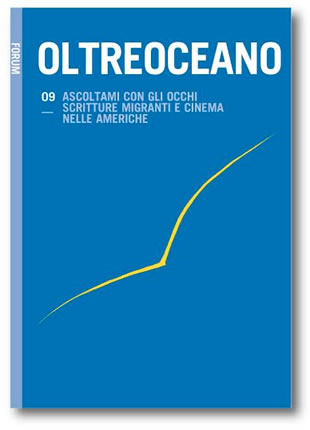Daffy Duck or the Generous Writer
Keywords:
cartoon, ethnicity, cultural pluralism vs. melting-pot, century 20th, second generation artistsAbstract
Antonio D’Alfonso shows the true nature of Warner Brothers short animated film “Duck Amuck” (1953), by Michael Maltese, a screenwriter of Italian origins. Behind the surreal of its appearances, this cartoon hides the question of ethnicity.
Daffy Duck o lo scrittore generoso
Antonio D’Alfonso dimostra come il cartone animato di Duffy Duck, Pennelli, rabbia e fantasia (“Duck Amuck”, 1953), sceneggiato dall’italo-americano Michael Maltese, nasconda, dietro una veste surrealista e leggera, una vera e propria riflessione sull’etnicità.
Downloads
References
Aczel, Amir D. (1996): Fermat’s Last Theorem: Unlocking the secret of an ancient mathematical problem. New York: Delta Publishing.
Bergson, H. (1956): Comedy. Laughter. Followed by an Essay on Comedy by George Meredith. New York: Anchor Books.
Bourne, R. (1992): The Radical Will. Selected Writings: 1911-1918. O. Hansen (Ed., introduction). Berkeley: University of California Press.
Assemblée nationale de Québec (2013): Charte de valeurs (Charter of Values). Projet de loi n. 60: Charte affirmant les valeurs de laïcité et de neutralité religieuse de l’État ainsi que d’égalité entre les femmes et les hommes et encadrantles demandes d’accommodement. Retrieved from http://www.assnat.qc.ca/fr/travaux-parlementaires/projets-loi/projet-loi-60-40-1.html
Friedberg, M. (2008): Literary Translation in Russia: A Cultural History. Pennsylvania: PenneState University.
Grossman, E. (2010): Why Translation Matters. New Haven: Yale University.
Kallen, H. M. (1998): Culture and Democracy in the Unites States. With a new introduction by Stephen J. Whitfield, 1924. New Brunswick: Transaction Publishers.
Lewis, C. S. (1996): The Joyful Christian. 127 Readings, 1977. New York: A Touchstone Book.
Meredith, G. (1956): An Essay on Comedy. With Laughter by Henri Bergson. New York: Anchor Books.
Micone, M. (1982): Gens du silence. Montreal: Québec / Amérique.
Rauschenbusch, W. (1998): Dare We Be Christians?, 1914. Cleveland: The Pilgrim Press.
Reitz, Jeffrey G. (1980): The Survival of Ethnic Groups. New York: McGraw-Hill.
Schulte, R. & Biguenet, J. (Eds.) (1992): Theories of Translation: An Anthology of Essays from Dryden to Derrida. Chicago and London: The University of Chicago Press.
Zangwill, I. (1909): The Melting-Pot. Comedy Theatre, New York, Director Hugh Ford. Films.
Jones, Ch. M. 1953): Duck Amuck. Michael Maltese scriptwriter. Warner Bros.
Hanna, W. & Barbera, J. (1960-1966): Flintstones. Michael Maltese scriptwriter. Hanna & Barbera Studio.
Hanna, W. & Barbera, J. (1958-1961): Huckleberry Hound. Michael Maltese scriptwriter. Hanna & Barbera Studio.
Hanna, W. & Barbera, J. (1959-1962): Quick-Draw McGraw. Michael Maltese scriptwriter. Hanna & Barbera Studio.
Downloads
Published
How to Cite
Issue
Section
License

This work is licensed under a Creative Commons Attribution-NonCommercial-ShareAlike 4.0 International License.
The authors undertake to comply with the following conditions, which are considered accepted at the time of submission of their contributions.
The sending of a text implies that it is unpublished and not submitted to be published elsewhere.
1. If accepted, the author shall confer on the publisher the right to publish and distribute it both in paper form and in the online electronic edition. The published articles will be downloadable and made available in open access.
2. Provided that it correctly indicates that the first publication took place in the journal Oltreoceano. Rivista sulle migrazioni the author has the right to: a) reproduce the article in separate extracts or collected in a volume; b) publish the article on their personal website or teaching site provided that these sites are of a non-commercial nature; c) deposit the article in online archives of a non-commercial nature, linked to the institution they belong to or as part of projects for the non-commercial dissemination and open access of scientific works.
The use of contributions by third parties, for commercial or otherwise unauthorized purposes, is not allowed. The publisher declines all responsibility for the unauthorized use of the material published in the journal.












